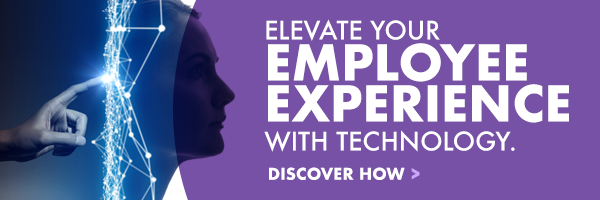Why You Should Prioritize the Employee Experience This Year


What’s on your company agenda this year? Increase revenue? Decrease costs? Improve client acquisition and decrease churn?
These are all worthwhile objectives. But there’s no way you can attain them without buy-in from the workforce. And there’s no way you’ll get buy-in from the workforce without a positive employee experience.
Here’s a closer look at why the employee experience should be among your top priorities this year.
The Ins and Outs of the Employee Experience
In a recent Forbes article, Denise Lee Yohn, author of the bestselling book What Great Brands Do: The Seven Brand-Building Principles that Separate the Best from the Rest, declared 2018 “The Year of the Employee Experience.” Yohn’s commentary on the employee experience (EX) starts with an interesting angle — explaining what EX is not, rather than what it is. According to Yohn, the employee experience is not …
- The responsibility of just the Human Resource department. Rather, it requires collaboration between the facility management, IT and corporate communications teams.
- Offering “cool” perks and hosting company excursions. A positive employee experience goes beyond Taco Tuesdays, Beer Fridays and trips to the local amusement park. It is offering unique, substantive benefits that align with the company culture.
- Employee engagement. Some organizations confuse employee engagement with employee experience or employee satisfaction. In reality, high levels of employee engagement and satisfaction start with an exceptional EX.
So, What Is The Employee Experience?
The employee experience is the sum of all interactions an employee has with their employer. The employee experience is influenced by three things:
- The physical workplace, including workplace design and layout
- The tools and workplace technology an employer provides to enable employees to be more productive
- How an employer demonstrates its commitment to the health and success of employees
Essentially, it’s everything an employee does from the time they apply for a position and go through the interview process until their last day at the organization. It’s the way they interact with their managers and colleagues, as well as each step they take to do their jobs. Even seemingly minor frustrations (such as being unable to hear someone on a conference call due to equipment malfunctions) can have a negative impact on the employee experience if they’re repeated over weeks, months and years.
Why the Employee Experience Matters
The total cost of replacing a single employee can be as much as twice that employee’s annual salary when you factor in recruiting, onboarding and lost productivity. And if you want to increase revenue and decrease costs, it’s in your best interest to keep your employees around. In today’s job market, employees, not employers, have the upper hand.
According to the Bureau of Labor Statistics, since January 2015, there have been more job openings than hirings. Employees have access to more information about job openings and workplace culture than ever before, thanks to websites like LinkedIn and Glassdoor. As long as they have skills and experience that are in demand, they know they can afford to give careful consideration to where they choose to work.
In a 2016 survey by Glassdoor, 61 percent of respondents said they look at company reviews and ratings before deciding whether or not to apply for a job. And among the top five details job seekers want to know about a company are what makes it an attractive place to work. Nearly 70 percent of workers in the U.S. said they wouldn’t accept a job offer from a company with a bad reputation even if they were currently unemployed.
How to Create an Extraordinary Employee Experience
Now that you know why the employee experience is so important, what do you do next? Consider each of the questions below, which are adapted from Deloitte’s Simply Irresistible Organization model:
- Do you offer the workforce meaningful work? Are employees given autonomy and placed with teams where they can offer the most value?
- Is your management team supportive? Do employees know what’s expected of them and are there supervisors available to help coach?
- Is your work environment positive, flexible, humanistic, inclusive and diverse?
- Do you provide employees with growth opportunities? Do they receive on-the-job training in a culture that promotes learning?
- Do your employees have trust in the leadership team? Do they understand the mission and purpose of the company and feel as if the organization is honest and genuinely invested in their success?
If you can’t answer “yes” to the majority of these questions, it’s time to take a closer look at your employee experience.
The Takeaway
This year is, without a doubt, the year to start focusing on the employee experience if you haven’t already. You must know, without a doubt, that your organization can offer current and future employees the kind of workplace they can’t find anywhere else. If you don’t prioritize the employee experience in this employee-driven market, you’ll discover fewer talented individuals walking in the door and more heading out.
Want to offer your workforce a truly exceptional environment? Check out iOFFICE Hummingbird to see how implementing powerful employee experience solutions can elevate your organization.
